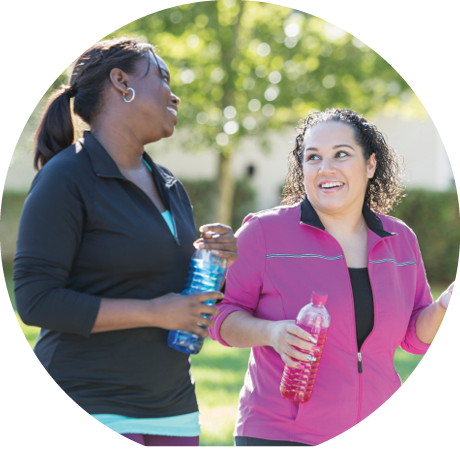Tips, Tricks, and Transitioning: A Practical Guide to Furthering Your Education

You are here
Are you thinking about going back to school? As practitioners, we often have this in the back of our minds. You see advertisements for continuing education opportunities and wonder if this dream can become a reality. Or you might be strongly encouraged to take courses as part of your employer’s professional development plan. Most of us have to juggle our family lives, full-time employment, and any volunteer work; it is scary to think about adding school to the mix. Having been out of school for a few years, you wonder if you would be able to start over again. As a mature student, you would have a lot more to learn than just the curriculum. Not only will you have to teach yourself how to study again, but you’ll also face the challenges—technological, among others—of studying in the 21st century. There are many options available to suit your schedule, but you need to decide which one will work best for your family and your learning needs.
The use of technology in education has increased dramatically in the past 20 years. This investment is believed to give students the ability to solve problems, collaborate, study from the comfort of their homes, and analyze information to help them be competitive in the 21st century (Lim et al. 2013). The college or university you plan to attend may use an online learning management system that enables professors to post their lectures, create discussion forums, and establish a flipped classroom in which you are expected to listen to the lecture and do the readings before class and then apply what you have learned to real-life scenarios and activities during class time.
Higher education enables you to increase your qualifications and thereby provide services you might not have been able to otherwise. It might change your life completely (Pritchard & Roberts 2006). Returning to school involves change, and you may find the experience a little daunting. However, if you are prepared for the changes, you may be able to avoid unwelcome surprises and moments of anxiety (Pritchard & Roberts 2006).
We have developed tips—the first letters of which together spell COLLEGE—to help adults of any age return to school. These suggestions will ease your transition from practitioner to student.
Communicating
Professors share their knowledge and understanding of a subject in various ways. Some concepts might be quite clear to you, but others, not so much. One graduate’s advice is to not be afraid to ask questions. (Before asking, review the course material to ensure that it does not already give the answer—for example, when is the midterm?) If you’re stuck on a question or concept, don’t spend a lot of time on it; go on to the next one, and then ask for help as soon as you can. Remember, the material is new to your classmates, as well, so in addition to talking to them, ask the expert.
Successful students meet with their professors early in the term and return regularly.
Professors have office hours set aside each week for helping students. This is a good time to clarify information or to ask questions you are uncomfortable asking during class. Successful students meet with their professors early in the term and return on a regular basis.
Another way to communicate with your instructor is via email. Before emailing your professor, check your syllabus and notes to see if you already have the information you need. Use a clear, informative subject line, such as “First assignment for Communications 101.” Begin with an appropriate salutation, as you would in a letter. You are not writing an informal text message; therefore, greet your professor by name and title to show respect. Do not use emoticons or i instead of I. Professors receive a lot of correspondence, so be concise and politely explain why you are writing. Sign your email using both your first and last names so the professor can identify you and provide an appropriate response. To ensure that your email does not contain any spelling or grammatical errors, do not forget to edit it before hitting Send. (There are many editing tools, such as Grammarly or Ginger, for reviewing your written work. For example, if you make a mistake with the word there, these tools will tell you the difference between there, their, and they’re.)
Remember, every piece of written communication becomes a permanent record that a variety of professionals may see. If you find yourself writing an angry email, do not send it! It might be better to make an appointment to speak with the professor, either in person or over the phone—after you have calmed down.
Organizing your school work
Check to see whether your school provides students with agendas, or if you prefer, use the calendar on your phone to keep yourself organized. In our experience, successful students schedule time to study in fixed blocks during the week, in addition to the time they spend in class. One way to reduce your stress level is to organize your assignment due dates. When the professor distributes the course syllabus, immediately add all deadlines to your calendar. You can then create your own time line, including the steps you need to take to complete an assignment. For example, if a paper is due on the 30th of the month, you might want to start your research no later than the 10th, write the rough draft by the 20th, and finish the final draft by the 25th. That way, you have time to reflect on the assignment and are not in a rush to complete it the night before. Be realistic when creating your time lines for assignments, and consider technology carefully. Do you really have time to learn how to use Prezi software, for example, and also research and write your presentation?
While we encourage you to look ahead in the syllabus, please wait until the professor has taught the material before beginning an assignment, and do not submit an assignment early. Reassess it shortly before it is due to ensure you have not missed a component.
Learning
To be successful as a student, you will probably need to sharpen your study skills. During the week, establish a schedule that enables you to focus on your course work outside of class. One of our students uses her lunch breaks to study and complete course work. Another is on her computer at 5:00 a.m., before she goes to work.
As is often true with children, many adult students learn material better when they engage with content in multiple ways. After reading and listening, for example, you might want to create a picture or diagram, write the material out in your own words, or ask a friend to quiz you on the material.
Typically, the first class in a course is critical—it lays the foundation for the rest of the term. This is when the professor explains in detail the syllabus and his expectations for students. If you arrive at least five minutes before class starts, you can prepare yourself physically and mentally. Choosing to sit near the front of the class helps reduce distractions.
Taking good notes is essential, as you cannot rely on memory alone, but do not try to write down everything. Focus on putting the key points—those things the professor spends a lot of time on—into your own words. The last five minutes of the class are often a summary. Use this time to listen closely and fill in some blanks in your notes rather than pack up your stuff. Periodically, compare notes with a couple of classmates to ensure you have not missed anything.
Living with less stress
One way to relieve stress is to take control of your situation. Make time to take care of yourself, even though you are busy. To be at your best, get seven to eight hours of sleep every night, drink a lot of water, and get regular exercise. If you do not already have a support system, it is important that you create one. It can be your significant other, family, friends, or colleagues. Surround yourself with positive people who are willing to help you reach your goals. Talk to them about what you are learning. Remember that you are a role model for the families and the children in your care. You are showing them that education is important and that you value lifelong learning, hard work, and determination.
 For many adult students, the greatest source of stress is figuring out how to pay for college. Start by applying for financial aid; even if you do not think you qualify, apply anyway—you never know! Apply for every scholarship and grant you can find. Usually colleges have a list of scholarships and grants, along with the deadlines for applications. Talk to an accountant; there might be a tax credit you can use. The American Opportunity Tax Credit and the Lifetime Learning Credit are two great starting points (Colwell 2015). Contact your bank; they might be able to help you find an affordable loan.
For many adult students, the greatest source of stress is figuring out how to pay for college. Start by applying for financial aid; even if you do not think you qualify, apply anyway—you never know! Apply for every scholarship and grant you can find. Usually colleges have a list of scholarships and grants, along with the deadlines for applications. Talk to an accountant; there might be a tax credit you can use. The American Opportunity Tax Credit and the Lifetime Learning Credit are two great starting points (Colwell 2015). Contact your bank; they might be able to help you find an affordable loan.
Remember, you need to consider the cost of tuition, books, supplies, and transportation, and you might need to upgrade your Internet plan. If you are a parent, you might want to budget for someone to care for your children when you need to study for a test or write a paper. Last, redo your monthly budget to include your school considerations, so you can get an idea of what you will be able to afford as you pursue your degree. Overall, do not forget that education is an investment in your future.
Embracing supports
Many colleges have professional support services for students. They can range from medical care and counselling services to tutoring supports, academic accommodations, and advocacy. We encourage you to access these services—on an individual basis or by signing up for a workshop.
In addition to benefitting from these services, find time for yourself and take a break from all of the action. One strategy that is gaining in popularity is mindfulness—the awareness that emerges from paying attention to the present moment (Greater Good Science Centre 2017). Here is how it works:
Pay attention to your breathing, especially when you are feeling emotional and overwhelmed.
Really notice what you are experiencing at a given moment—the sounds, smells, sights.
Recognize that your emotions and thoughts do not define you; this can help you break a pattern of negative self-talk.
Recognize your body’s physical sensations—the way you rest your body in your chair, the way the water feels when you wash your hands.
Research indicates that taking five minutes out of your day to be mindful helps reduce stress; fosters positive, healthy relationships; and improves your overall well-being. Instead of counting sheep, mindfulness training may help you sleep better (Greater Good Science Centre 2017). (For more information about mindfulness, see “Mindfulness and Meditation,” by Teresa Buchanan [2017].)
Many adult students learn material better when they engage with content in multiple ways.
Getting the most from your courses
In college, learning and success require much more than doing only what is necessary to get by. Benjamin Bloom, an educational psychologist, created a taxonomy of educational objectives. Many professors consult this taxonomy when designing their courses. The following summary builds on Bloom’s work (and on more recent cognitive science) to provide tips for maximizing your learning (Anderson & Krathwohl 2001).
- Remembering new information is just the beginning of your learning. If you don’t revisit information that you have memorized for an exam, it will soon fade from your long-term memory. To be sure your hard work pays off, quiz yourself every week or so on the course material to date. The process of trying to remember, and checking your answers, is highly effective for making your new knowledge stick (Smith & Weinstein 2016).
- Understanding the material is essential to real learning. You must be able to explain, summarize, illustrate, or describe the concept you are learning in order to connect with other relevant material and understand it.
- Applying knowledge to real-world situations means that you can use it in the field. You will be able to draw on your knowledge to improve your practice and demonstrate what you are learning. You might even become a role model for your peers.
- Analyzing involves using the knowledge you have applied and comparing or contrasting it with other experiences. This stage will help you critique your role, as well as your program, in order to make it more efficient and effective.
- Evaluation means you can make informed judgments about what you have learned in the past and can critique new information. A full evaluation entails considering how sound your thoughts are (e.g., what evidence base they rest on) and the extent to which you can support your decisions and assess their effectiveness. It also often results in new questions to pursue to expand your knowledge.
- Creation means that you are able to take what you have learned and use it to construct something new. Combining your roles as teacher and learner, you should aim to plan, implement, and critique new instructional approaches and lesson plans.
Experiencing success
Be they online or face-to-face, many higher education options are available to suit your schedule and learning needs. Not only will adding to your credentials deepen your knowledge, it might even reignite your passion for the profession and open doors to new career opportunities. We believe that our tips will help you succeed because we have seen them work in our in-person and online classrooms. Take it from one of our students who earned an early learning child care diploma in 2016:
I was successful because I loved what I was learning, and I was eager to succeed in my field. I broke down my assignments and used time management to make them seem like less of a task. Reliable teachers and fellow students were a great help, as well as prioritization and making sure that I took breaks and had time to relax.
Photographs: © iStock
Kelly Mazerolle, MA, is the founding director of the Wainwright MFRC (Military Family Resource Centre) Child Development Centre. She is the program head for Early Learning and Child Care at Lakeland College, in Vermilion, Alberta, where she teaches in both English and French. [email protected]
Melissa Rothwell, MA, CYCC, is the program head of the Child and Youth Care and the Community Mental Health programs at Lakeland College. Melissa is a doctoral student at Royal Road University, studying discourse analysis in education policies. melissa.rothwell@lakelandcollege.ca